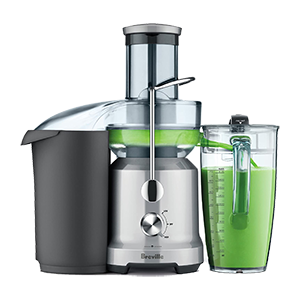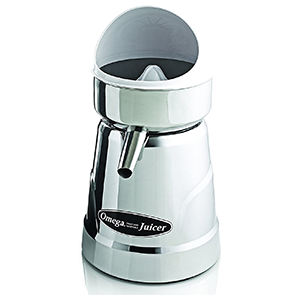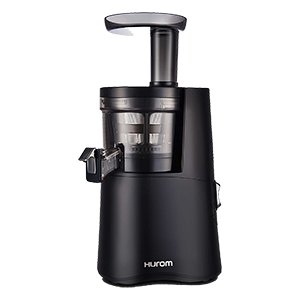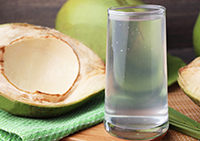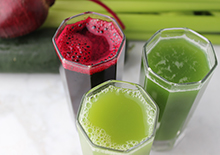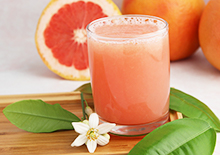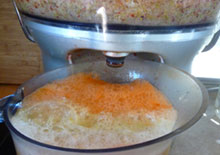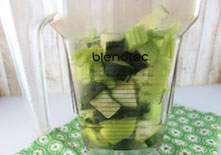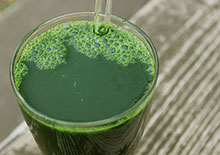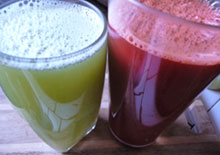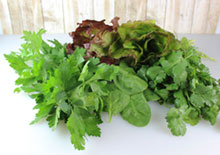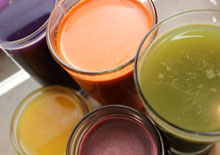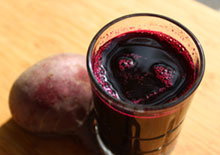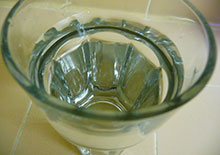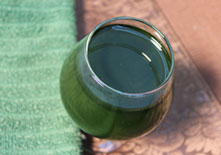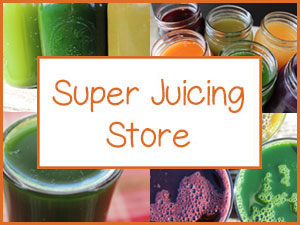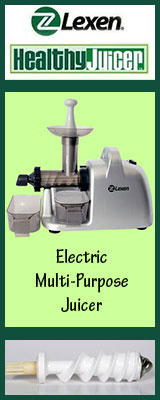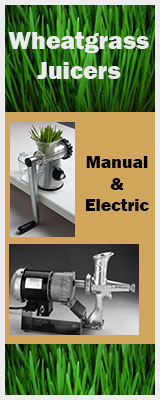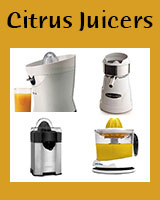- Home
- Super Juicing
- Top Mono Juices
Vegetable Juice Cleanse, Top Mono Juices and Their Health Benefits
Intro | Mono Juicing Vegetables | Our Top Vegetables for Juicing | Selecting Your Vegetables | Precautions | Shop
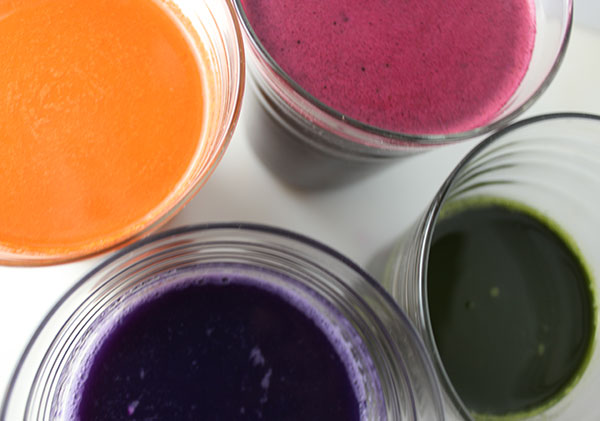
A vegetable juice cleanse can be a gentle yet effective way to receive easily absorbed liquid phytonutrients while simultaneously giving your digestive system a much needed break from its everyday functions.
When energy is no longer needed for digesting solid foods, the body and organs are able to repair and replenish in ways they could not when consuming the normal intake of fats, starches, proteins and fibrous foods.
Table of Contents
Intro | Mono Juicing Vegetables | Our Top Vegetables for Juicing | Selecting Your Vegetables | Precautions | Shop
Sometimes the best remedies for illness and digestive troubles can be found in the unique plant compounds of various common vegetables. These foods are not only beneficial when consumed in their whole fiber form, but also make very nutritious juices when pressed through a juicer.
Many people turn to juice cleanses when they're feeling off, bloated, stressed or fatigued. This is generally a good time to try to keep things simple and drink nothing but fresh pressed juices for a short period of time.
Periodic fasting is one of the oldest methods for alleviating many physical aches, pains and health conditions. Benefits can be achieved by simply substituting a morning juice for breakfast or, for deeper cleansing, consuming juices exclusively for a one to three day period or much longer.
With extended juice fasting
regimens, the liver, kidneys and colon are further able to process toxins and undigested waste material that can overload normal bodily functions. As a consequence, most people feel very
energized when consuming nothing but juice for several days in a row as the body is able to operate at a much higher level.
Low calorie detoxifying liquid juices are additionally great for reducing excess body weight as well as clearing the complexion and providing healthy youthful looking skin. It is a common experience that when you cleanse the body internally, you not only feel better, you look better as well.
Although intensive juicing protocols may come with periodic side-effects that may include lethargy, muscle aches, food cravings and possible emotional distress, these occurrences are frequently short lived and sometimes a necessary part of the healing process.
What awaits you on the other side is usually an extremely life enhancing experience. Usually, most people achieve a new appreciation for the foods they eat and are much more likely to continue a health promoting diet and lifestyle.
Mono Juicing Vegetables
Whether you are juicing one specific vegetable or using a blend of different raw low-sugar fruits and vegetables, it can be helpful to know the specific properties of certain top varieties that have been used as folk remedies throughout history.
The concept of juicing one particular vegetable variety at a time is occasionally referred to as "mono juicing." Mono juicing is juicing made simple and a practice employed to concentrate a vegetables health enhancing constituents. Some vegetables can be juiced and consumed in large quantities while others are best ingested in smaller doses.
Mono juicing is a great way to get to know how each variety can affect and be of benefit to your own particular body type or health issues. This information can come in handy when concocting your own juice recipes or when trying to alleviate anything from acute gastrointestinal disorders to more chronic complaints, like arthritis, ulcers or high blood pressure.
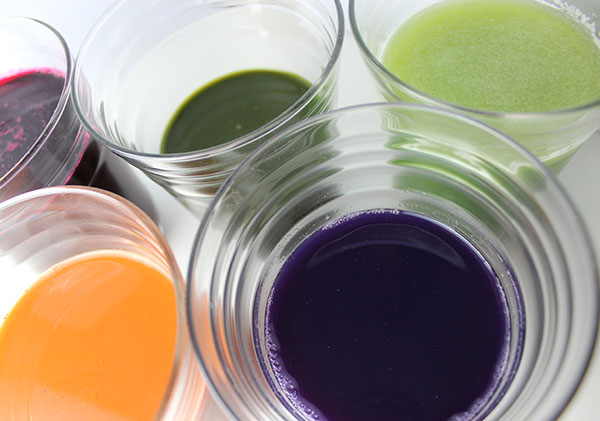
Here, we list our top 6 vegetables that can be mono juiced exclusively throughout the day between meals or first thing in the morning. They may also be appropriate juices to drink with other juice blends when juice fasting for a period of several days in a row.
Every vegetable type comes with their own set of medicinal qualities. Some are extremely alkalizing to the body with detoxifying elements, while others contain added potency with colorful antioxidant pigments unique to each vegetable.
Our Top Vegetables for Juicing
1) Cucumber Juice
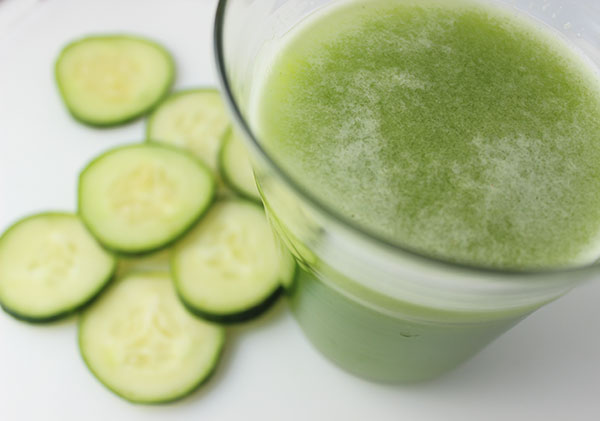
Cucumbers are a popular base ingredient used in many juicing recipes because of their high amounts of water, low-sugar content and neutral flavor. Cucumber juice is very hydrating to the body and extremely nourishing to the skin when consumed. It can be used internally to help heal skin irritations, sun burns and to reduce swelling in the joints.
The whole fruit is best juiced with skins and seeds included. The fresh pressed juice has a cooling effect helpful for soothing heat and treating inflamed conditions as cucumber is known to inhibit the activity of pro-inflammatory enzymes like cyclooxygenase-2 or COX-2.
Cucumbers are naturally high in potassium which helps to counteract the effects of excess dietary sodium. This can be helpful in situations such as high blood pressure or cardiovascular disease.
Cucumber juice is also a commonly prescribed natural therapy for balancing pH, helpful for conditions like acidosis or acid reflux. It is extremely alkalizing to the body and is an age old remedy for healing and soothing stomach ulcers as well as treating kidney and bladder problems. The juice with a squeeze of lemon is specifically used as a natural preparation for removing uric acid from the system and preventing the formation of kidney stones.
Two 8oz glasses of cucumber juice daily is generally the recommended therapeutic dose for certain gastrointestinal or kidney disorders, but this amount may vary depending on one's body weight and dietary intake.
With cleansing effects as a gentle laxative, it can be very beneficial for eliminating constipation as well as removing accumulated wastes and toxins. The juice can be used alone or in juicing recipes for diabetics who generally can't tolerate the concentrated sugar found in other fruit varieties.
Cucumbers contain specific flavonoids, triterpenoids, polyphenols, like fisetin, cucurbitacins and certain lignans such as pinoresinol, lariciresinol, and secoisolariciresinol. These various constituents are known to exhibit anticarcinogenic and anti-inflammatory activities. (Source)
In a 2014 study, fisetin was shown to maintain cognitive function in Alzheimer's disease in transgenic mice, proposing "a new approach to the treatment of AD." In another 2015 study published in the European Journal of Pharmacology, fisetin was shown to inhibit the growth of breast cancer, "suggesting fisetin as a potential chemopreventive agent for breast cancer metastasis."
2) Carrot Juice
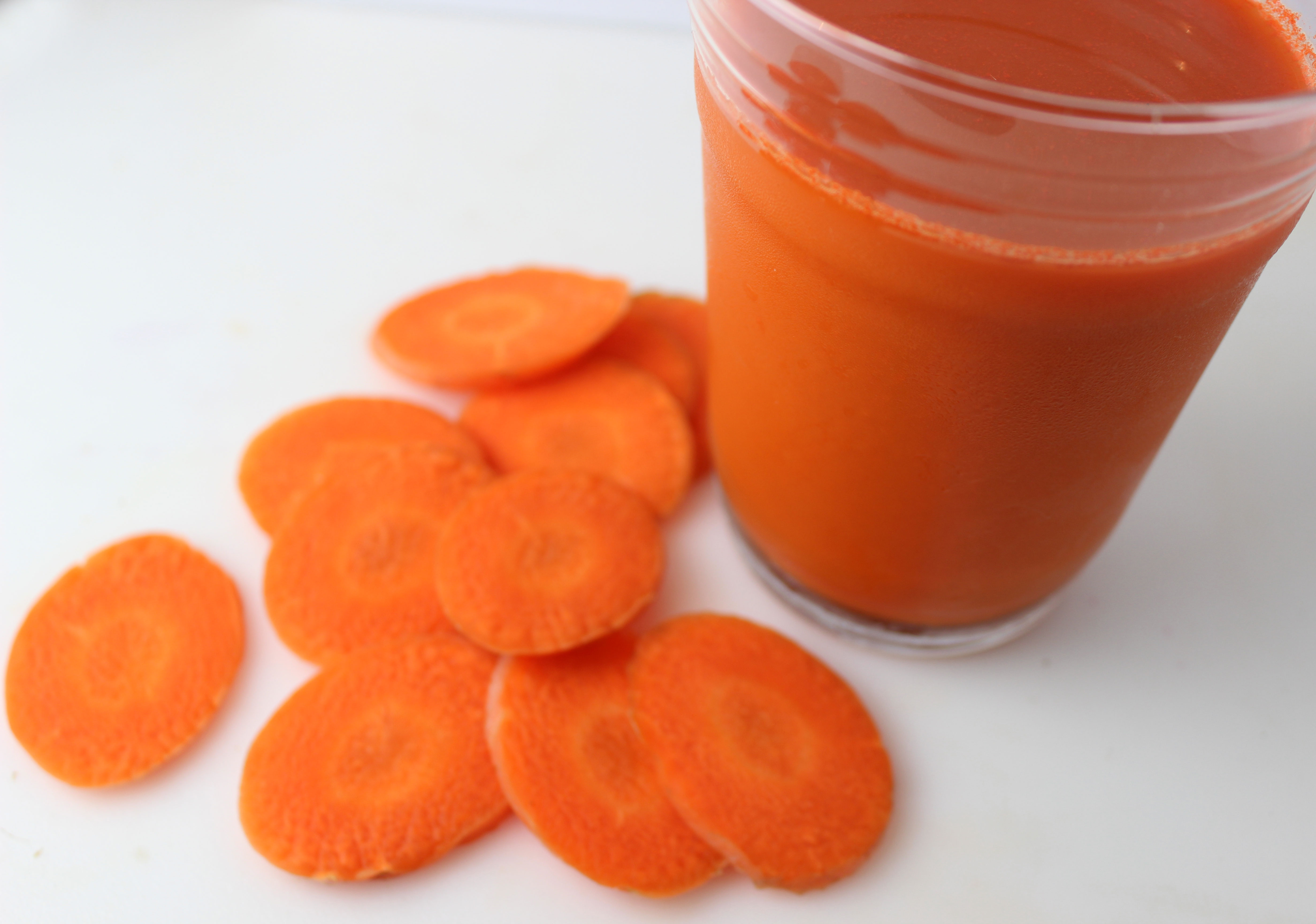
Carrots, being one of the most common root vegetables, are a top juicing variety many people are familiar with drinking. They also have a sweet pleasant taste which tends to be more appealing for those new to juicing fruits and vegetables. The bright orange pigments in carrots are full of antioxidants and carotenoids very beneficial for the eyesight.
Containing both lutein and beta-carotene, which converts to vitamin A in the liver, concentrated unpeeled carrot juice is also a highly nutritious juice to consume for healthy skin and helps to protect it from UV light damage. Juicing carrots is a great way to increase this nutrient in the diet and is a safe natural alternative to taking beta-carotene supplements which are known to cause toxic side-effects.
The vitamin A and vitamin C derived from carrots are free radical scavenging compounds that additionally boost the immune system and reduce oxidative stress to cellular DNA structure, proteins and lipids. Carrots are also high in some B complex vitamins like folic acid which is important for DNA synthesis and repair.
In a study published in the Journal of Nutrition and Cancer analyzing the effects of carrot juice on breast cancer survivors, it states "Evidence suggests that higher plasma carotenoid concentrations are protective in relation to breast cancer recurrence."
In some research carrot juice has shown to be effective in the treatment of leukemia as well as reduce the risk of lung cancer and cardiovascular disease. Two natural bioactive polyacetylene substances in carrots called falcarinol and falcarindiol, also found in American ginseng roots, were shown in some research to exhibit protective effects against specific types of cancer including breast and colon cancer.
An excessive amount of carrot juice can cause a harmless condition known as carotenemia, which turns the skin a yellow-orange color. Decreasing juice intake will quickly eliminate this disorder.
Because of the high sugar ratio in carrots, it is best to avoid drinking the juice if you are diabetic or have fungal infections or yeast overgrowth.
3) Cabbage Juice
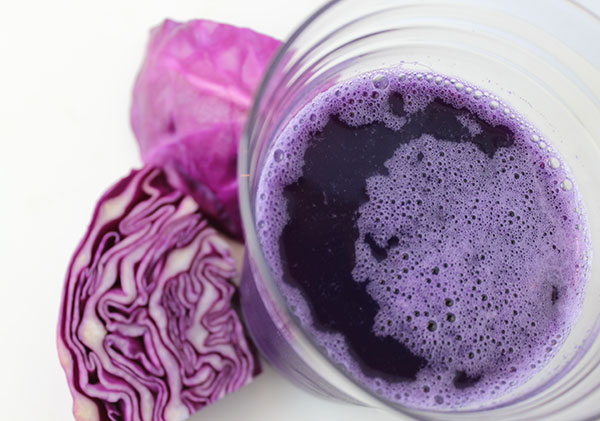
Purple and green cabbage juice is a traditionally used remedy for stomach ulcers. Like broccoli and broccoli sprouts, cabbage is a cruciferous vegetable and a rich source of the phytonutrient called sulforaphane, shown to have antimicrobial attributes that inhibit the Helicobacter pylori bacteria associated with many gastrointestinal issues.
In one 2015 study it states that "The sulforaphane induces Phase I and II enzymes involved in detoxification processes of chemical carcinogens in order to prevent the start of carcinogenesis. It also presents anti-tumor action at post-initiation Phase, suggesting supplementary roles in cancer prevention."
The sulforaphane and other constituents in cabbage juice also help to alleviate acid reflux and are soothing to the gastrointestinal lining.
In addition to vitamin K, vitamin C and beta-carotene, red or purple cabbage juice contains the antioxidant pigment referred to as anthocyanin. In a 2015 study published in the Journal of Molecular Nutrition and Food Research it was concluded that "anthocyanin metabolites are bioactive at physiologically relevant concentrations and have the potential to modulate cardiovascular disease progression by altering the expression of inflammatory mediators."
While purple cabbage juice can have a strong flavor, it is worth the momentary intake if its medicinal properties can be of particular benefit to your specific health goals. It is also beneficial to consume the juice along with other tastier varieties, like apples or carrots to cut the potent flavor.
Cruciferous cabbage and its juices are high in phytoestrogens which are usually not advised for those with high estrogen levels and/or a hypothyroid.
4) Celery Juice
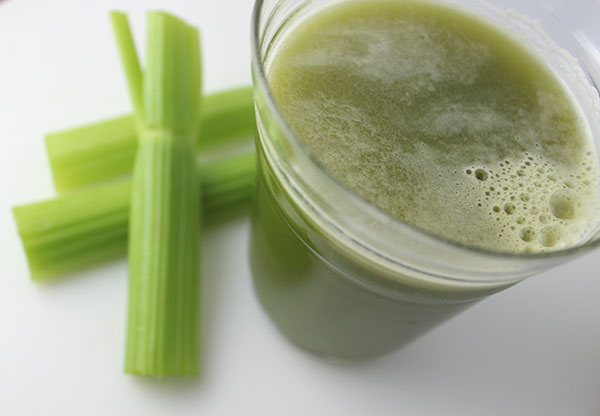
The juice extracted from whole celery stalks, next to cucumber, is one of the most cleansing liquids you can drink. As an alkalizing food source, celery juice is extremely balancing to the body pH and helpful for the release of toxins, stored waste material and uric acid build up. The juice can be used therapeutically for many health conditions such as gout, kidney and gall stones as well as high blood pressure.
Celery is naturally high in sodium content but likewise contains its mineral balancer, potassium. These nutrients, in the proper ratio, help to hydrate the body and are essential for fluid regulation, ridding excess when needed. Celery juice is the perfect drink for rehydrating the body after an intensive workout session or exercise regimen.
In addition, the phytonutrients, vitamins and minerals in the juice are a natural folk remedy for reducing high blood pressure. A recommended 8-16 oz glass serving a day for 5-7 days in a row, along with a health promoting diet, is an often prescribed amount for achieving the desired results.
Several active constituents present in celery stalks that are especially concentrated in their juicing liquid include phthalide, coumarin and apigenin. Phthalides, like sedanenolide and butylphthalides and their volatile oils, are considered the primary compounds responsible for celery's blood pressure-lowering qualities as they act as blood vessel dilators and help to normalize blood flow.
In a 2014 published review discussing the nutraceutical functions of celery, it states that "Celery extracts are reported to possess many nutraceutical properties, such as antioxidant, hypolipidemic, hypoglycemic and anti-platelet aggregation."
Phthalide also assists in inhibiting the production of tyrosine hydroxylase, an enzyme required for the production of various stress hormones called catecholamines. Stress hormones are known to constrict blood vessels and obstruct healthy blood circulation. The phthalides in celery have also shown to be of benefit for reducing LDL (bad) cholesterol and maintaining healthy cholesterol levels. (Source)
Some of the bitter-tasting elements in celery are due to its coumarin content. The natural whole food-based coumarin found in the juice can be beneficial for strengthening immune functions and increasing the body's resistance to infections. In one study analyzing coumarins and their therapeutic role in treating cancer, it was demonstrated that metabolites of coumarin exhibited a potent inhibitory effect on tumor growth.
Another compound in celery called apigenin is a bioflavonoid that acts as an anti-inflammatory agent and is also useful for preventing hypertension.
5) Beetroot Juice
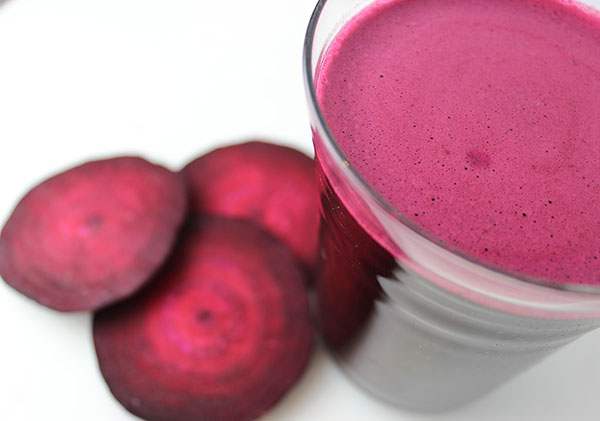
Beets are a brightly pigmented vegetable full of antioxidants like betalain, betacyanins and betanin, all of which add to its naturally deep red color. These pigments are immune system boosters and also exhibit anti-inflammatory, antifungal and blood purifying effects. Beets, and especially their unpeeled juice concentrates, are a rich source of iron which helps to build the blood and prevents anemia.
Raw beets contain the carotenoids lutein and zeaxanthin which are extremely nourishing for the retina of the eye and assist in protecting the skin from UV damage.
Beets are also a source of betaines, or trimethylglycine, which is useful for eliminating toxins and reducing unhealthy levels of the amino acid homocysteine, recently linked to heart disease. High amounts of homocysteine have shown to damage red blood vessels, causing strokes, blood clots, atherosclerosis and heart disease. (Source)
One to two cups of beetroot juice, once or twice daily by itself or with other freshly pressed juices, can be very beneficial for lowering blood pressure, purifying the blood, improving cardiovascular health and reducing inflammation in the body.
In a double-blind study published in 2015 in the journal "Hypertension", the nitrate content in beetroot juice was shown to benefit adults with high blood pressure and was viewed as an "adjunctive treatment in the management of patients with hypertension." The phyto-nitrate content in beets is one of the main components responsible for these properties. Dietary nitrates are converted by the body into nitric oxide in the blood which helps to dilate or widen the blood vessels and normalize blood flow.
As we mentioned, for maximum benefits and therapeutic use it is best to drink the juice rather than eat uncooked beets. You simply get more condensed nutrients which are required for medicinal purposes. Visit our beet juice benefits page for more on its health enhancing attributes.
Beets are a super sweet vegetable and should be avoided by those with diabetes or candida overgrowth.
6) Cilantro Juice
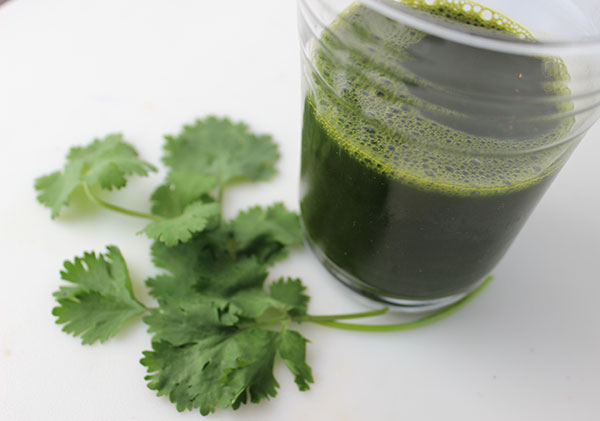
Cilantro, often referred to as coriander or Chinese parsley, is a green leafy vegetable that grows from the seeds of the popular culinary spice, coriander. Cilantro leaves and stems contain bioactive compounds such as phenolics, flavonoids, steroids and tannins that have been evaluated for their antihepatotoxic, antidiabetic and antioxidant activities.
The leaves and stems of the plant when juiced are an extremely purifying food for the blood and cleansing to the organs of the body, especially the liver, kidneys and colon. Chlorophyll-rich foods, like wheatgrass or green juices, often have these benefits when consumed, but cilantro also contains other health enhancing components that have been specifically identified for their use in heavy metal detoxification.
Some research has demonstrated that high concentrations of cilantro help to accelerate the excretion of mercury and other metallic substances from the body via the urine. Other evidence shows its effectiveness for use with dental amalgam filling removal whereby potentially toxic amounts of mercury can secrete into the bloodstream and organ systems. According to the EPA, mercury levels over 0.1 micrograms per kilogram of body weight per day are neurotoxic to humans and can cause long term psychological, neurological, and immunological problems over time.
In one study extracts of cilantro were shown to increase the urinary excretion of delta-aminolevulinic acid which is known to increase with lead intake, suggesting "that Chinese parsley has suppressive activity on lead deposition, probably resulting from the chelation of lead by some substances contained in cilantro (Chinese parsley)."
Cilantro's effects as a hepatoprotective plant are primarily believed to be due to its high phenolic content with the presence of compounds like pyrogallol, caffeic acid and glycitin. Hepatoprotective foods protect the liver from damage and cilantro extracts have been proven helpful for preventing "localized lead deposition", according to the previously mentioned study.
Juicing the leaves and stems of cilantro can be achieved using a juicer equipped for juicing greens or the plant can be chopped and blended with water and strained through a mesh bag. Cilantro juice is best consumed in smaller doses between 1-5 ounces at a time, depending on current health issues. Average intake for detoxification therapy is a 4 ounce glass of juice 2-3 times a day. Cilantro is also an excellent ingredient to use when creating any juice blend.
Cilantro is also on our list of non-cruciferous leafy greens for those of you with a thyroid disorder, looking for other options to avoid the potential goitrogen uptake.
Selecting Your Vegetables
Store-bought produce can be severely lacking in quality nutrients as many conventionally cultivated crops are grown in depleted top soils devoid of necessary minerals. We need the minerals from the foods we eat to assimilate other vitamins and nutrients.
Plants get minerals from the soil and transfer them to us when we consume them. However, today it is much more challenging to get the required amount because of top soil depletion as well as extended shelf life of the grocery store produce available.
Without a doubt the best vegetables are picked fresh and ripe from your own garden, second best however are farmer markets or CSA boxes. When these options are not possible, a grocery or health food store might be your only alternative.
It is imperative when selecting store-bought produce to choose organic vibrant looking vegetables. When juicing, it is important to make sure your produce is pesticide and chemical-free as you will be concentrating these toxins in the juicing liquid.
Typically vegetables that are in season are of a higher nutritional value than ones that are produced in a greenhouse or imported from other countries.
Precautions:
It is important to seek the advice of your physician before drinking vegetable juices for an extended period of time, especially if you have severe health conditions or illnesses. Some juice concentrates may interfere with certain prescribed medications. In such situations, it is necessary to consult your health care provider before consuming.
Shop Related Products (About Affiliates & Amazon Associate Paid Links)
Affiliate Disclaimer: This section contains affiliate product links. If you make a purchase through our recommended links, we receive a small commission at no additional cost to you. Thanks for the support.

